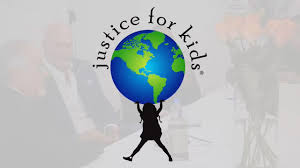
Protecting Florida’s Most Vulnerable: The Critical Mission of Justice for Kids in Defending Injured and Abused Children
The innocence of childhood should be a time of wonder, growth, and protection. Yet for far too many children across Florida, this fundamental right is violated through injury, abuse, and neglect. When adults fail in their duty to safeguard the young lives entrusted to their care, the consequences can echo throughout a lifetime.
In these darkest moments, specialized legal advocates become not just representatives but champions for justice, fighting to restore dignity and secure compensation that can aid in healing. Among these dedicated professionals, Justice for Kids stands as a beacon of hope, combining legal expertise with genuine compassion to protect the civil rights of Florida’s most vulnerable citizens.
The landscape of child protection in Florida presents unique challenges that demand attorneys who understand not only the law but the profound psychological, emotional, and developmental impacts of harm inflicted upon young people. A Florida child injury attorney must navigate complex legal systems while maintaining sensitivity to the trauma their young clients have endured. This delicate balance requires specialized training, experience, and an unwavering commitment to justice that transcends typical legal practice.The Scope of Child Endangerment in Florida
Florida’s diverse population and geographic spread create varied environments where children face risks. From densely populated urban centers to rural communities, from affluent neighborhoods to economically challenged areas, threats to child safety manifest in countless forms. Physical injuries resulting from negligent supervision at daycare facilities, schools, recreational programs, and residential settings occur with alarming frequency. Beyond accidental harm, intentional abuse—whether physical, emotional, or sexual—leaves scars that may never fully heal.
The statistics paint a sobering picture. Each year, thousands of Florida children experience abuse or neglect requiring intervention from child protective services. However, these numbers represent only reported cases; many instances of harm go undocumented, hidden behind closed doors or institutional walls. When seeking justice for these children, families need more than generic legal representation. They require advocates who specialize in this sensitive area of law, professionals like those at Justice for Kids who can be reached at 844-454-3529 or help@justiceforkids.com.
Child injury cases encompass a broad spectrum of circumstances. Swimming pool accidents at apartment complexes or hotels, playground injuries resulting from inadequate equipment maintenance, dog attacks in neighborhoods with negligent pet owners, and injuries sustained during school activities all fall within this category. Each scenario demands thorough investigation to establish liability and negligence. A dedicated law firm in Florida for child injury cases understands the nuances of premises liability, negligent supervision claims, and the heightened duty of care owed to children in various settings.
The Devastating Reality of Child Sexual Abuse
Among the most heinous violations of childhood innocence, sexual abuse represents a crisis that affects children across all socioeconomic backgrounds, races, and communities. The betrayal inherent in these cases—often perpetrated by trusted adults, family members, educators, coaches, or religious figures—compounds the trauma. Victims may struggle with shame, confusion, and fear that prevents immediate disclosure, sometimes keeping their suffering hidden for years or even decades.
Florida law has evolved to recognize the unique challenges survivors face in coming forward. Extended statutes of limitations now provide pathways for adult survivors to seek justice for abuse suffered in childhood. This legislative progress acknowledges that healing and the courage to pursue legal action often take time. However, navigating these claims requires specialized knowledge that a child sex abuse law firm in Florida possesses through dedicated focus on this area of practice.
The impact of childhood sexual abuse extends far beyond the immediate physical violations. Survivors frequently experience post-traumatic stress disorder, depression, anxiety, difficulty forming healthy relationships, substance abuse issues, and challenges with trust that permeate all aspects of life. Some develop complex trauma responses that affect their ability to work, maintain stable housing, or parent their own children. The economic costs associated with treatment, therapy, and lost productivity throughout a lifetime can reach staggering amounts.
Pursuing civil litigation in sexual abuse cases serves multiple purposes. Financial compensation can provide resources for extensive therapy, medical treatment, and support services essential to healing. Beyond monetary relief, civil cases offer survivors a voice and validation often absent from criminal proceedings. They hold institutions accountable for failures in protecting children under their care—whether through negligent hiring, inadequate supervision, failure to respond to warning signs, or active concealment of abuse. An attorney in Florida for child sexual abuse cases recognizes that these lawsuits contribute to systemic change by exposing dangerous patterns and forcing organizations to implement stronger protective measures.
Civil Rights Protection for Florida’s Children
The concept of civil rights extends to citizens of all ages, including children. While young people cannot vote or enter contracts independently, they possess fundamental rights to safety, dignity, and equal treatment under the law. When these rights are violated through injury, abuse, or neglect, legal mechanisms exist to seek redress and accountability. Understanding children’s civil rights in the context of personal injury and abuse claims requires sophisticated legal knowledge that a FL child civil right attorney brings to each case.
Children in state custody, foster care systems, juvenile detention facilities, and educational settings have specific constitutional protections. The Fourteenth Amendment guarantees due process and equal protection, establishing that government entities and their agents bear responsibility for protecting children from harm when those children are in their care. When caseworkers fail to investigate abuse reports, when foster parents harm children placed with them, when detention staff abuse incarcerated youth, or when school officials ignore bullying that leads to injury, civil rights violations may have occurred.
Beyond government settings, children have rights in private contexts as well. Daycare centers, private schools, youth sports organizations, religious institutions, and recreational facilities all owe heightened duties of care to the children they serve. When these entities fail in their obligations, causing harm through negligence or intentional misconduct, they can be held liable. The legal principles governing these cases recognize that children cannot protect themselves in the same way adults can and that society must maintain robust accountability measures for those entrusted with youth supervision.
Justice for Kids understands that civil rights cases involving children often intersect with other areas of law. Educational rights under the Individuals with Disabilities Education Act may be relevant when children with special needs face discrimination or inadequate protection. Title IX protections address sexual harassment and assault in educational settings. The Americans with Disabilities Act creates obligations for public accommodations serving children with disabilities. An attorney well-versed in these interconnected legal frameworks can pursue comprehensive claims that address all dimensions of rights violations.
The Justice for Kids Approach: Compassion Meets Expertise
What distinguishes exceptional child injury and abuse attorneys from competent general practitioners? The answer lies in specialized knowledge, dedicated resources, and a practice philosophy centered on the unique needs of young clients and their families. Justice for Kids exemplifies this approach through every aspect of their representation.
From the initial consultation, families encounter a different kind of legal experience. Understanding that discussing a child’s injury or abuse is emotionally overwhelming, the attorneys at Justice for Kids create a supportive environment where parents and guardians can share their concerns without judgment. The team recognizes that clients often come to them during the most difficult period of their lives, struggling with guilt, anger, confusion, and fear for their child’s future. Reaching out to 844-454-3529 or help@justiceforkids.com represents a crucial first step that the firm honors by responding with both professionalism and genuine empathy.
Investigation in child injury and abuse cases requires particular sensitivity and thoroughness. Unlike adult personal injury claims where the victim can fully articulate their experience, children may have difficulty expressing what happened, especially in abuse cases where perpetrators often manipulate victims into silence. Justice for Kids employs investigators experienced in working with children, collaborating with child psychologists, medical experts specializing in pediatric injuries and abuse, and other professionals who can help establish the full scope of harm.
Documentation becomes paramount in these cases. Medical records must be carefully analyzed to identify injury patterns consistent with abuse or to establish the extent of harm from accidents. Educational records may reveal behavioral changes following abuse or demonstrate how injuries have affected a child’s learning. Expert witnesses play critical roles in explaining to juries how certain injuries could only result from intentional harm or extreme negligence, how abuse affects child development, and what future care and treatment the child will require.
The attorneys at Justice for Kids also understand the importance of protecting child clients throughout the legal process. Court proceedings can be traumatizing for young victims who must revisit painful experiences. Skilled attorneys work to minimize their clients’ direct involvement when possible, using recorded statements, expert testimony, and other evidence to establish claims without unnecessarily exposing children to adversarial questioning. When children must participate in depositions or testimony, proper preparation and support can mitigate additional trauma.
Institutional Accountability: Changing Systems That Fail Children
Individual perpetrators of abuse and negligent parties must certainly be held accountable, but systemic change requires looking beyond single incidents to the institutions and organizations whose failures enable harm. A truly effective child sex abuse law firm in Florida or law firm in Florida for child injury cases pursues institutional accountability as a core mission.
Religious organizations have faced mounting litigation regarding clergy abuse and the institutional cover-ups that allowed predatory individuals to access vulnerable children for decades. These cases have revealed systematic failures: transferring known abusers to new parishes rather than reporting to authorities, ignoring complaints from children and parents, prioritizing institutional reputation over child safety, and maintaining secrecy through non-disclosure agreements. Civil litigation has forced many religious organizations to implement new policies, background check procedures, and reporting requirements.
Educational institutions face similar accountability for failing to protect students from sexual abuse by teachers, coaches, and other staff members. Cases have exposed administrators who received credible abuse allegations yet failed to investigate, continued employing individuals with troubling histories, or actively concealed misconduct to avoid scandal. Title IX litigation has expanded to encompass institutional responsibilities in addressing sexual harassment and assault, creating obligations for schools to respond promptly and effectively to protect students.
Youth sports organizations have increasingly faced scrutiny regarding abuse by coaches and athletic trainers. The USA Gymnastics scandal revealed how predatory doctors could abuse hundreds of young athletes while organizations failed to act on complaints. Swimming, soccer, cheerleading, and other youth sports have confronted similar revelations. Civil cases in these contexts examine whether organizations conducted proper background checks, implemented adequate supervision policies, responded appropriately to concerns, and created cultures where children felt safe reporting abuse.
Foster care systems and residential treatment facilities present particularly troubling contexts where vulnerable children may suffer abuse from caretakers or other residents. The state’s assumption of parental responsibility when children enter custody creates heightened constitutional obligations. When children are harmed in these settings, civil rights litigation can pursue accountability from state agencies, private contractors operating facilities, and individual wrongdoers. These cases often reveal systemic inadequacies: insufficient caseworker training, overwhelming caseloads preventing proper supervision, inadequate screening of foster parents, and failure to investigate abuse reports.
Justice for Kids approaches institutional cases with the resources and determination necessary for success. Organizations often possess substantial legal resources and will vigorously defend against claims threatening their reputation and finances. Effective representation requires attorneys who will not be intimidated by powerful defendants, who possess the financial capacity to sustain prolonged litigation, and who can match sophisticated defense strategies with equally skilled advocacy. By contacting 844-454-3529 or help@justiceforkids.com, families gain access to a firm prepared to confront institutional power with unwavering commitment to their child’s justice.
Compensation and Healing: What Justice Means for Injured Children
Legal victories in child injury and abuse cases serve purposes beyond financial compensation, though monetary damages play crucial roles in healing and recovery. Understanding what justice encompasses helps families appreciate the importance of pursuing legal action even when doing so requires confronting painful memories and experiences.
Economic damages address the quantifiable costs associated with a child’s injury or abuse. Medical expenses often begin immediately and may continue for years or even a lifetime. Beyond emergency treatment, children may require ongoing therapy, counseling, psychiatric care, specialized medical treatment, and rehabilitation services. Educational costs may arise if injuries affect learning or if therapeutic educational settings become necessary. Future earning capacity may be diminished by trauma’s long-term effects or physical disabilities resulting from injury.
Calculating these damages for children presents unique challenges. An adult injury victim has an established earning history and career trajectory that economists can use to project lost income. Children lack this history, requiring experts to make projections based on parental education and income, the child’s demonstrated abilities and interests, and statistical data about earning potential. The longer timeframe involved in pediatric cases—potentially spanning seventy or more years—increases both the potential damages and the complexity of calculations.
Non-economic damages address the intangible but profoundly real harm children suffer. Pain and suffering, emotional distress, loss of childhood innocence, psychological trauma, and diminished quality of life all warrant compensation. These damages acknowledge that monetary compensation cannot undo harm but can provide some measure of justice and resources to support healing. Juries often respond powerfully to evidence of how injuries or abuse have robbed children of normal developmental experiences, creating empathy that translates into substantial verdicts.
In cases involving egregious conduct, punitive damages may be available. These damages punish defendants for particularly reprehensible behavior and deter similar conduct by others. Sexual abuse cases frequently involve conduct warranting punitive damages, as do cases where defendants knew of dangers to children yet failed to act. While not available in every case, punitive damages send powerful messages that society will not tolerate the exploitation or endangerment of children.
The compensation secured through successful litigation serves as a foundation for healing. Comprehensive therapy for trauma recovery, often requiring years of specialized treatment, becomes accessible. Families can afford the best medical care rather than accepting whatever their insurance minimally covers. Educational support services help children overcome learning challenges stemming from their experiences. In severe cases, lifetime care plans ensure children who suffered catastrophic injuries receive necessary support even after reaching adulthood.
A child neglect lawyer in Florida recognizes that children harmed through neglect face particular challenges. Neglect cases often involve ongoing deprivation rather than single incidents: chronic medical neglect leaving conditions untreated, educational neglect depriving children of appropriate schooling, supervisional neglect allowing children to face dangers, or emotional neglect causing developmental delays. The cumulative effects of neglect can be as devastating as single traumatic events, requiring equally comprehensive legal responses.
The Legal Process: What Families Can Expect
Understanding the legal journey helps families prepare for what lies ahead when pursuing child injury or abuse claims. While each case follows a unique path, certain common elements characterize these proceedings.
Initial consultations allow attorneys to understand the circumstances, assess the legal viability of claims, and explain potential paths forward. Justice for Kids provides these consultations without charge, recognizing that families need information before making decisions about legal action. During consultations, attorneys explain relevant statutes of limitations, identify potential defendants, discuss the evidence available, and outline what success might look like. Families should come prepared with whatever documentation they possess: medical records, incident reports, photographs of injuries, correspondence with institutions, and any other relevant materials.
Once representation begins, the investigation phase commences. Attorneys gather comprehensive evidence, interview witnesses, consult with experts, and build the factual foundation for legal claims. In sexual abuse cases, this may involve locating other victims who can establish patterns of conduct. In injury cases, investigators examine the scene where harm occurred, review maintenance records, and identify safety violations. Thoroughness during investigation often determines case outcomes, as evidence gathered during this phase forms the basis for settlement negotiations or trial presentation.
Filing a complaint initiates formal legal proceedings. The complaint outlines the legal claims, identifies defendants, and alleges facts supporting liability. Defendants then respond, typically denying allegations and asserting various defenses. This begins the discovery phase, where both sides exchange information through document requests, interrogatories, and depositions. Discovery in child cases requires careful management to protect young clients while still developing necessary evidence.
Settlement negotiations occur throughout the process, often intensifying after discovery reveals the strength of evidence. Many child injury and abuse cases resolve through settlement, allowing families to secure compensation without the uncertainty and stress of trial. However, settlement requires careful consideration. Attorneys must evaluate whether offers adequately compensate for all damages, both present and future. Justice for Kids negotiates from a position of strength, prepared to try cases when necessary to secure just outcomes.
When cases proceed to trial, juries hear evidence and determine both liability and damages. Trials in child cases often involve powerful emotional testimony and evidence, but they also require sophisticated legal arguments about duty, breach, causation, and damages. Experienced trial attorneys like those at Justice for Kids know how to present complex cases in ways juries can understand while maintaining focus on the child’s experience and needs.
Throughout this process, which may span months or even years, families need attorneys who communicate clearly, respond to concerns promptly, and keep clients informed of developments. The team at Justice for Kids maintains this commitment to client communication, ensuring families never feel lost in legal complexities. Questions can be directed to 844-454-3529 or help@justiceforkids.com at any stage of representation.
Statutes of Limitations: Time-Sensitive Justice
Florida law establishes time limits within which legal claims must be filed, known as statutes of limitations. These deadlines vary depending on the type of claim and the plaintiff’s age. Understanding these limitations is crucial because missing a deadline can permanently bar otherwise valid claims.
For childhood sexual abuse cases, Florida has recognized that survivors often cannot come forward immediately. Trauma, shame, fear, and psychological mechanisms may prevent disclosure for years. Recent legislative changes have extended time limits, allowing adult survivors to pursue claims they previously could not bring. However, these extensions are complex, with different rules applying based on when abuse occurred and when victims reach certain ages. Consulting with an attorney in Florida for child sexual abuse cases as soon as possible ensures rights are not lost to technical deadline issues.
General personal injury claims involving children have different limitation periods than adult claims. Florida law tolls certain statutes during minority, meaning the clock may not begin running until a child reaches age eighteen. However, exceptions exist, and practical considerations often favor earlier filing when evidence is fresh and witnesses’ memories are clear. Additionally, claims against governmental entities involve special notice requirements and shortened timeframes that families must carefully navigate.
The message for families is clear: do not delay in seeking legal consultation. Even when unsure whether pursuing legal action is the right choice, speaking with experienced attorneys helps families understand their options while options still exist. Justice for Kids offers consultations to assess claims and advise families about applicable deadlines, providing clarity during uncertain times.
The Broader Mission: Advocacy Beyond Individual Cases
While securing justice and compensation for individual clients remains the primary focus, firms dedicated to child protection recognize their broader social responsibilities. Each case presents an opportunity to advocate for systemic changes that protect future children from similar harm.
Justice for Kids contributes to this broader mission through multiple avenues. Litigation that exposes institutional failures can drive policy changes within organizations, even beyond the specific defendants. When cases reveal that religious organizations, schools, or youth programs lack adequate safety protocols, the publicity and financial consequences motivate similar institutions to examine and strengthen their own practices. Settlements and verdicts that include injunctive relief—court orders requiring defendants to implement specific safety measures—directly change how organizations operate.
The firm also participates in broader advocacy efforts supporting legislative changes that enhance child protection. This includes supporting extended statutes of limitations for abuse survivors, increased penalties for institutional failures to report suspected abuse, strengthened background check requirements for those working with children, and improved training requirements for mandated reporters. While attorneys cannot lobby directly, their expertise informs policymakers about gaps in current law and the practical effects of proposed reforms.
Public education represents another important component. By speaking at community events, participating in media coverage of child safety issues, and providing information through various platforms, attorneys can help parents, educators, and others understand warning signs of abuse, children’s legal rights, and resources available to families. This educational mission complements direct legal representation, creating a comprehensive approach to child protection.
The attorneys at Justice for Kids view their work as a calling rather than merely a career. They understand that representing injured and abused children means standing between the vulnerable and the powerful, between innocence violated and justice deserved. This perspective infuses every case with purpose beyond financial success, motivating the tireless advocacy that these cases demand.
Taking the First Step: How Justice for Kids Can Help
If your child has suffered injury, abuse, or neglect, the path forward may seem unclear. Feelings of guilt, anger, confusion, and fear are entirely natural. Many parents struggle with whether legal action is appropriate, worry about the impact on their child, or feel overwhelmed by the prospect of confronting powerful institutions or individuals. These concerns are valid, and addressing them requires guidance from professionals who understand both the legal landscape and the emotional dimensions of these cases.
Justice for Kids offers that guidance through comprehensive consultations designed to address your specific circumstances. By calling 844-454-3529 or emailing help@justiceforkids.com, you can begin a conversation about what happened to your child, what options exist, and what pursuing justice might mean for your family. These initial discussions occur without obligation or cost, allowing you to gather information necessary for informed decisions.
During consultations, attorneys will ask questions about your child’s experience, the circumstances surrounding the injury or abuse, any reporting to authorities or institutions, medical treatment received, and how your child has been affected. This information helps attorneys assess the legal viability of claims and identify all potentially liable parties. You should feel free to ask questions about the legal process, the firm’s experience with similar cases, what outcomes might be expected, and how the firm protects child clients throughout representation.
Understanding that discussing your child’s suffering is emotionally difficult, Justice for Kids approaches these conversations with sensitivity. The attorneys have extensive experience working with families in crisis and create supportive environments where you can share your concerns openly. They recognize that behind every case is a child whose life has been altered and a family seeking both justice and healing.
The decision to pursue legal action ultimately belongs to families, and Justice for Kids respects whatever choice you make. Some families find that litigation provides validation and resources essential to healing. Others may decide that private healing away from legal proceedings better serves their needs. There is no single right answer, but making an informed decision requires understanding your options. Consulting with a specialized Florida child injury attorney ensures you have the information necessary to choose the path that serves your child’s best interests.
If you decide to move forward with representation, Justice for Kids handles cases on a contingency fee basis. This means the firm only receives attorney fees if it secures compensation for your family through settlement or trial verdict. This arrangement ensures that families of all economic backgrounds can access high-quality legal representation without upfront costs. All case expenses are advanced by the firm and recovered only if the case succeeds, removing financial barriers to justice.
Every Child Deserves Protection and Justice
Childhood should be a time of safety, growth, and joy. When adults fail in their duties to protect children, whether through negligence that causes injury or intentional abuse that shatters innocence, society has an obligation to provide pathways to justice. Florida’s legal system offers mechanisms to hold wrongdoers accountable, secure compensation for harmed children, and drive changes that protect future generations.
Yet accessing these legal protections requires specialized knowledge and dedicated advocacy. General personal injury attorneys, however competent, may lack the specific expertise that child injury and abuse cases demand. Families seeking justice for their children deserve representatives who understand the unique legal, medical, psychological, and procedural aspects of these sensitive cases.
Justice for Kids provides this specialized representation throughout Florida, combining legal excellence with genuine compassion for injured and abused children. As a dedicated child sex abuse law firm in Florida and law firm in Florida for child injury cases, the firm has built a practice focused entirely on protecting children’s civil rights and securing the compensation they need to heal.
If your child has been injured, abused, or neglected, you do not have to face this crisis alone. Experienced advocates stand ready to fight for your child’s rights and future. Take the first step by contacting Justice for Kids at 844-454-3529 or help@justiceforkids.com. In this difficult time, your child needs a voice, a champion, and a path to justice. Justice for Kids provides all three, standing with families throughout Florida as they seek accountability and healing for their injured children.





